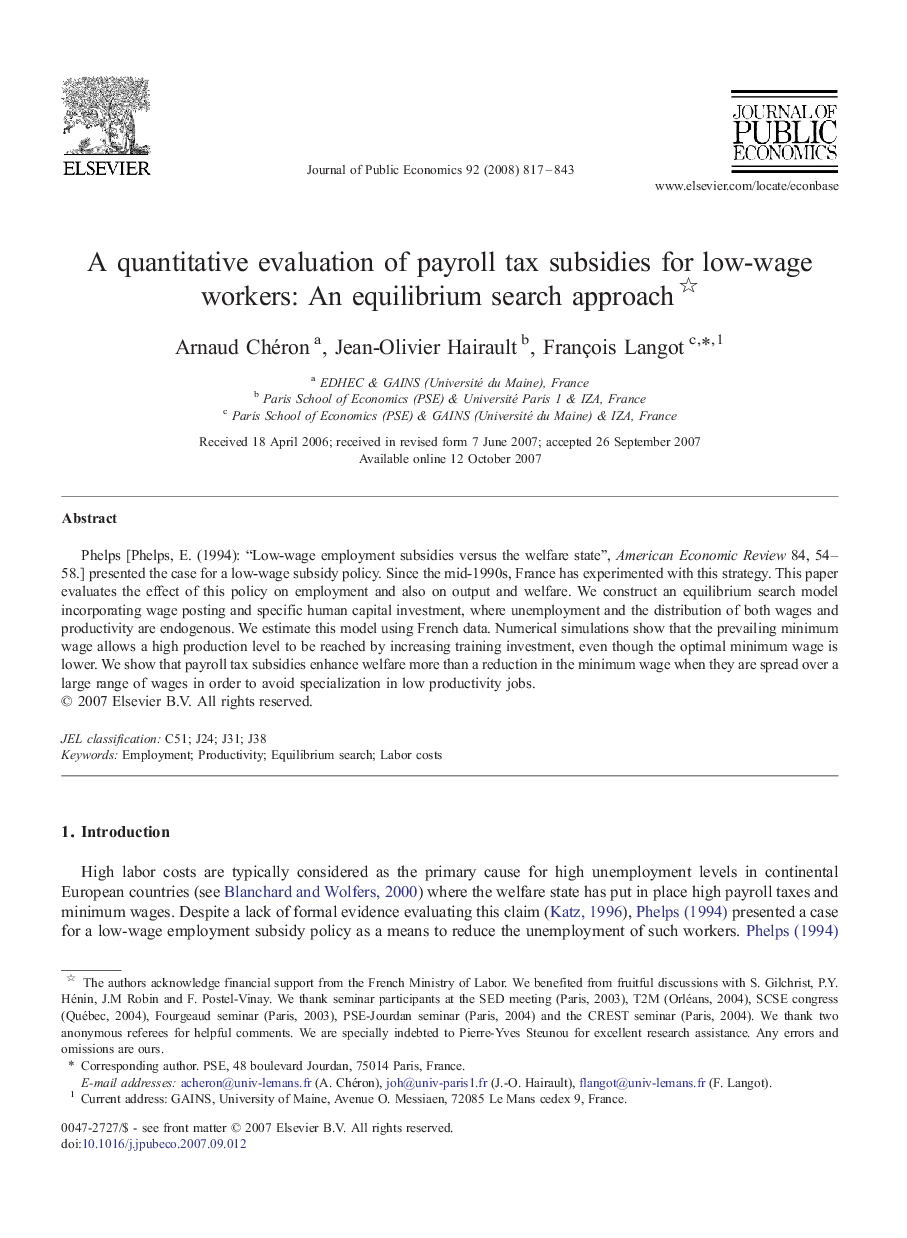| Article ID | Journal | Published Year | Pages | File Type |
|---|---|---|---|---|
| 969967 | Journal of Public Economics | 2008 | 27 Pages |
Phelps [Phelps, E. (1994): “Low-wage employment subsidies versus the welfare state”, American Economic Review 84, 54–58.] presented the case for a low-wage subsidy policy. Since the mid-1990s, France has experimented with this strategy. This paper evaluates the effect of this policy on employment and also on output and welfare. We construct an equilibrium search model incorporating wage posting and specific human capital investment, where unemployment and the distribution of both wages and productivity are endogenous. We estimate this model using French data. Numerical simulations show that the prevailing minimum wage allows a high production level to be reached by increasing training investment, even though the optimal minimum wage is lower. We show that payroll tax subsidies enhance welfare more than a reduction in the minimum wage when they are spread over a large range of wages in order to avoid specialization in low productivity jobs.
